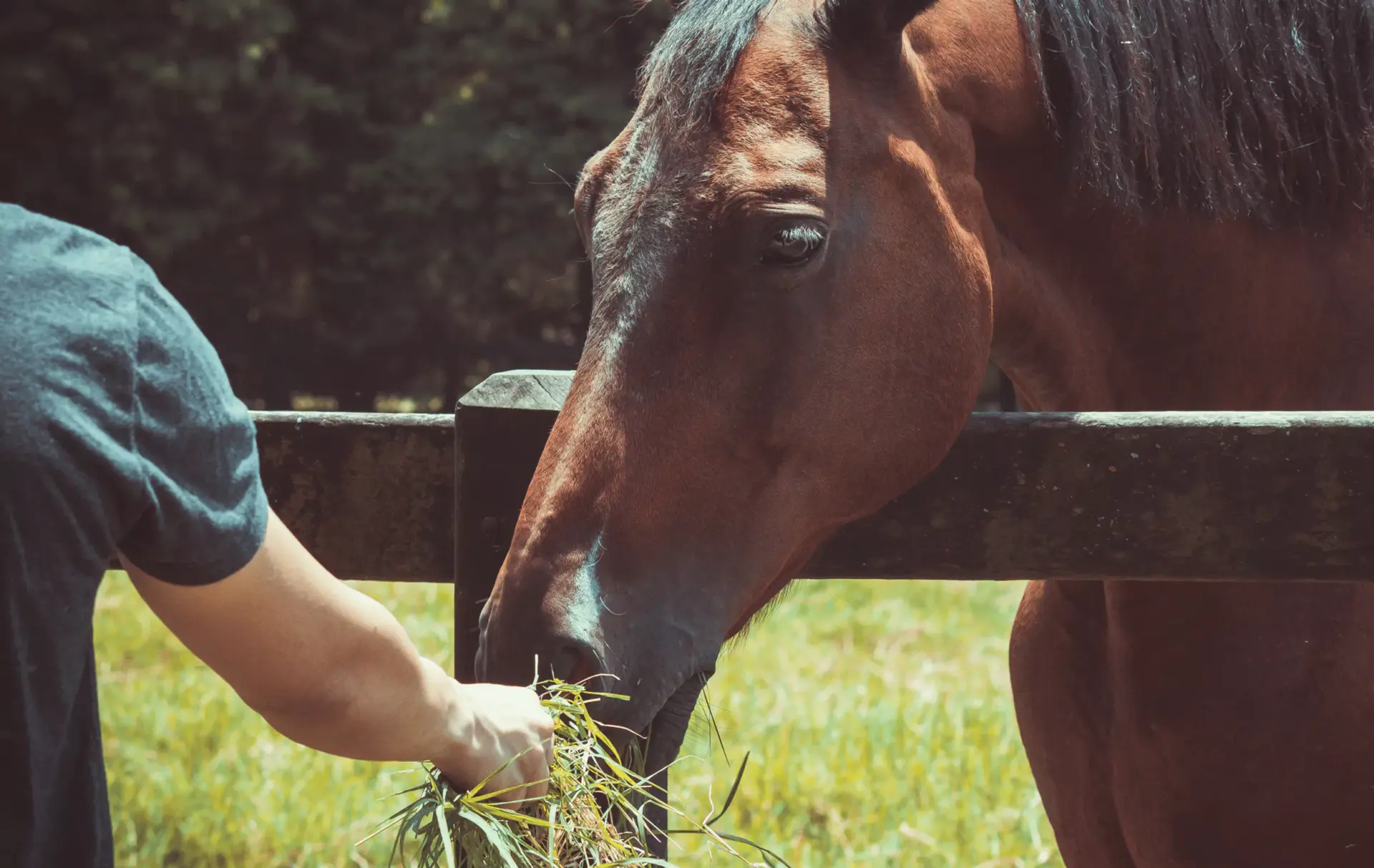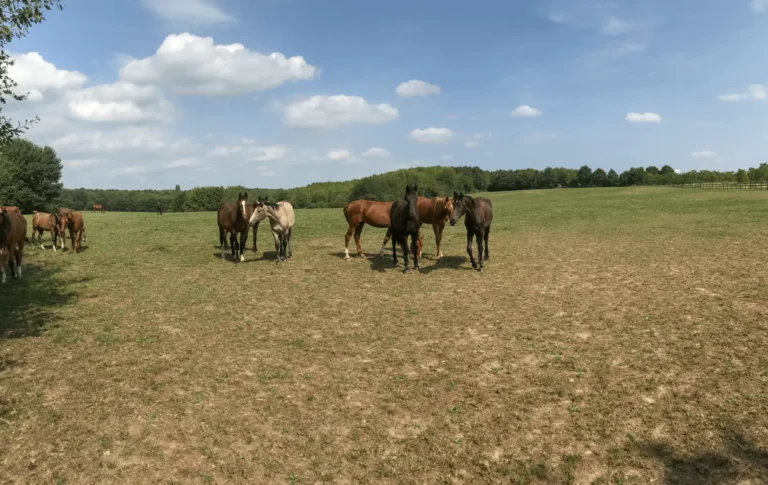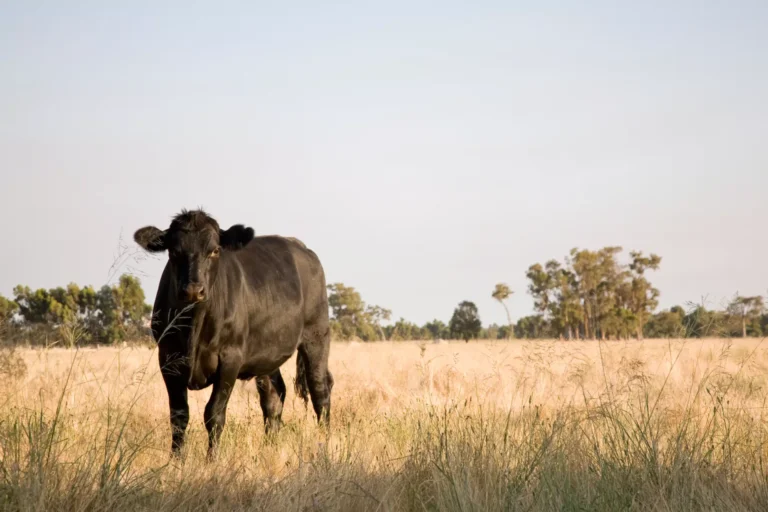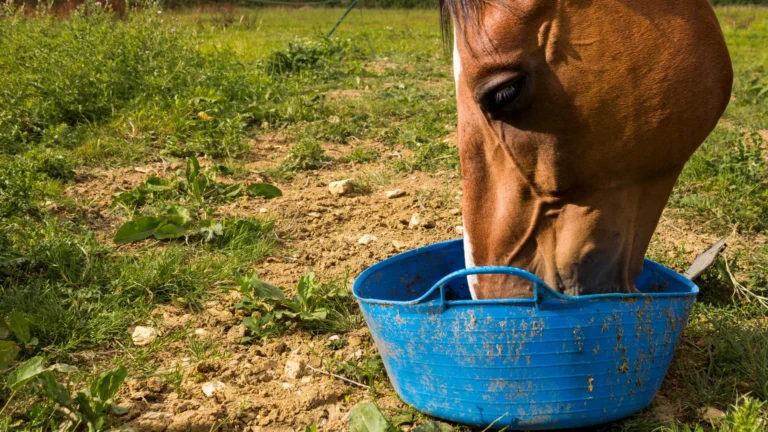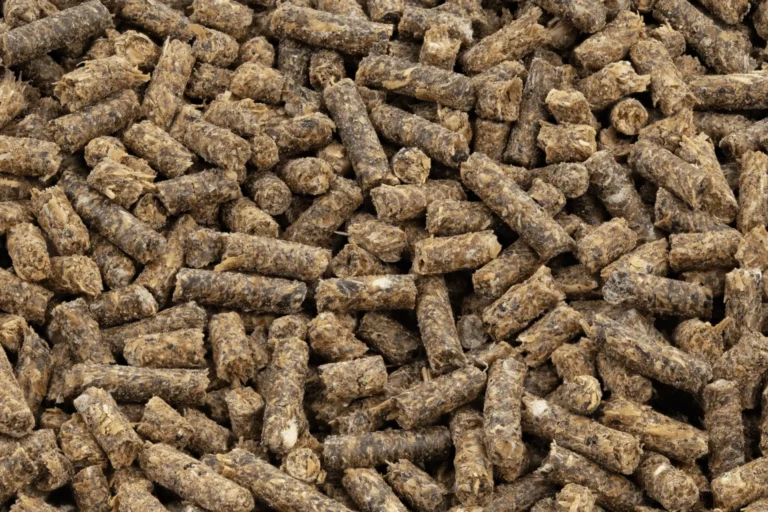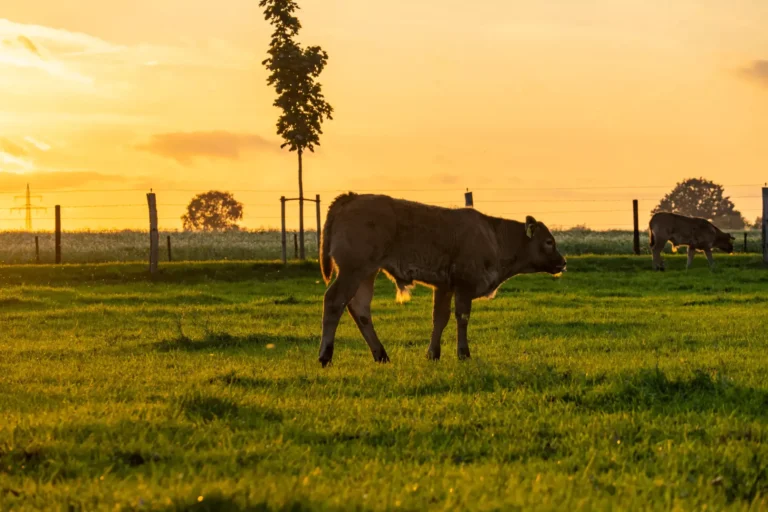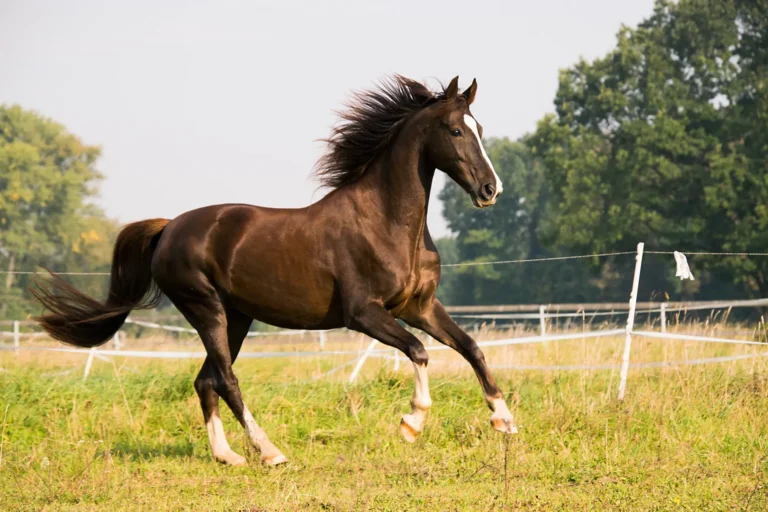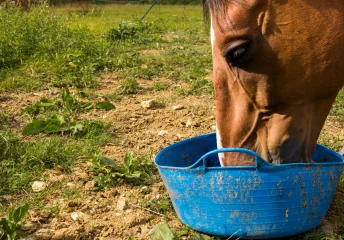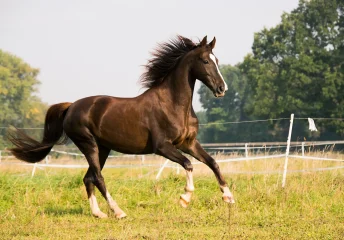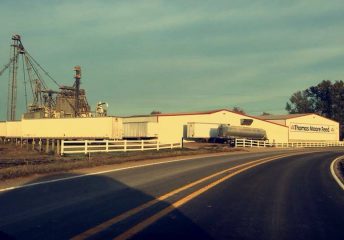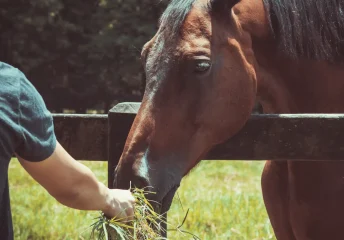Feeding horses is more complex than most people think. They have unique dietary needs and challenges that other pets and livestock don’t have, which leads to some common dietary challenges in horses. Horses primarily need to graze throughout the day on fibrous grasses, which makes many modern feeding practices fall short of their nutritional requirements. These solutions from Thomas Moore Feed experts will help you make informed decisions when it comes to feeding your equines.
Imbalanced Diets
A prevalent issue in horse nutrition is the imbalance of essential nutrients. Horses require a balanced diet of proteins, carbohydrates, fats, vitamins, and minerals. However many horse owners inadvertently provide diets that are either too rich or lacking in specific nutrients.
Thomas Moore Feed recommends conducting a thorough analysis of your horse’s diet. Start by assessing the forage quality and adjust your horse’s grain and supplement intake accordingly. Providing a complete equine feed that is tailored to your horse’s age, workload, and health status can help maintain proper nutrient balance. Consulting with your veterinarian is also a good way to formulate a feeding plan personalized to your horse’s specific needs.
Overfeeding
Obesity is common in domesticated horses, primarily due to overfeeding and lack of exercise. This can lead to severe health conditions like laminitis, insulin resistance, and joint stress. Overfeeding is one of the leading causes of obesity in horses.
Digestive Health Issues
Horses have a delicate digestive system that can be easily disrupted by sudden dietary changes, leading to colic and other gastrointestinal problems. Because of their anatomy, horses can’t vomit to rid their bodies of a food that doesn’t agree with them. So, once a horse swallows, food is with them until it is eliminated in their stool. Sudden changes to their diet can cause a painful buildup of gas or food that could quickly turn into the dangerous condition of colic.
Anytime you make a change to your horse’s diet, do so slowly over a 7-10 day period. This will give your horse’s digestive system time to adjust to changes, and help prevent digestive upset. Make sure that your horse has access to plenty of fresh, clean water, and consider adding digestive aids like probiotics and prebiotics during times of seasonal or dietary changes, or during periods of stress like traveling. Monitor your horse’s manure output and their behavior to catch digestive distress before it turns into colic.
Laminitis and Insulin Resistance
Horses can develop a painful condition called laminitis, which is commonly linked to insulin resistance and excessive sugar intake from grains and lush pasture. Overweight horses, or those used lightly that are kept on rich grasses or fed feed with high amounts of molasses or added sugar are at the highest risk of these conditions.
To mitigate the risk of laminitis, manage your horse’s intake of non-structural carbohydrates (NSCs) by choosing an equine feed with low sugar and starch content fortified with omega 3 fatty acids. A fortified alfalfa pellet can be fed to horses with insulin resistance to provide essential nutrients and protein while offering extra forage content. Focusing on metabolic health by implementing a grazing schedule that limits access to rich pasture, especially during peak growth periods, can also help avoid laminitis in horses.
Poor Hoof and Coat Condition
Diet plays a crucial role in maintaining healthy hooves and a shiny coat. Deficiencies in essential nutrients can lead to brittle hooves and dry coats in horses. Ensuring that your horse’s diet has adequate levels of biotin, zinc, and omega-3 fatty acids is essential to their overall health.
For hard-keepers, or horses with brittle hooves and dry coats, choose an equine feed fortified with omega-3. This essential fatty acid aids in hoof and coat condition, joint health, and can improve insulin sensitivity. Regular grooming and hoof trims complement a balanced diet to keep your horse looking and feeling their best.
Aging and Health Conditions
Horses have different nutritional requirements depending on their age and overall health. Aging horses, pregnant and lactating mares, or horses with chronic health conditions all have specific dietary needs. Factors like dental health, decreased digestive efficiency, and increased metabolic stress are all concerns for mature horses in particular.
For horses that are able to maintain their weight and body condition with traditional forage, a supplemental equine senior pellet will fill in nutritional gaps. For horses that have trouble keeping weight on, a natural senior equine feed provides more calories, protein, energy, and digestible fiber to help improve and maintain their body condition. Always consult your veterinarian for horses that are aging, or for pregnant and lactating mares, along with any other health conditions. Your vet will help you formulate a balanced feeding plan for your horse that will support their specific needs.
Feed Moore
Thomas Moore Feed has been a trusted name in equine nutrition for decades. With a focus on research-based solutions and premium ingredients, we offer a range of equine feed designed to meet the diverse needs of horses in every stage of life. Our commitment to quality makes us a preferred choice for horse owners seeking the best for their equine companions. Find a dealer near you to start feeding Moore.

